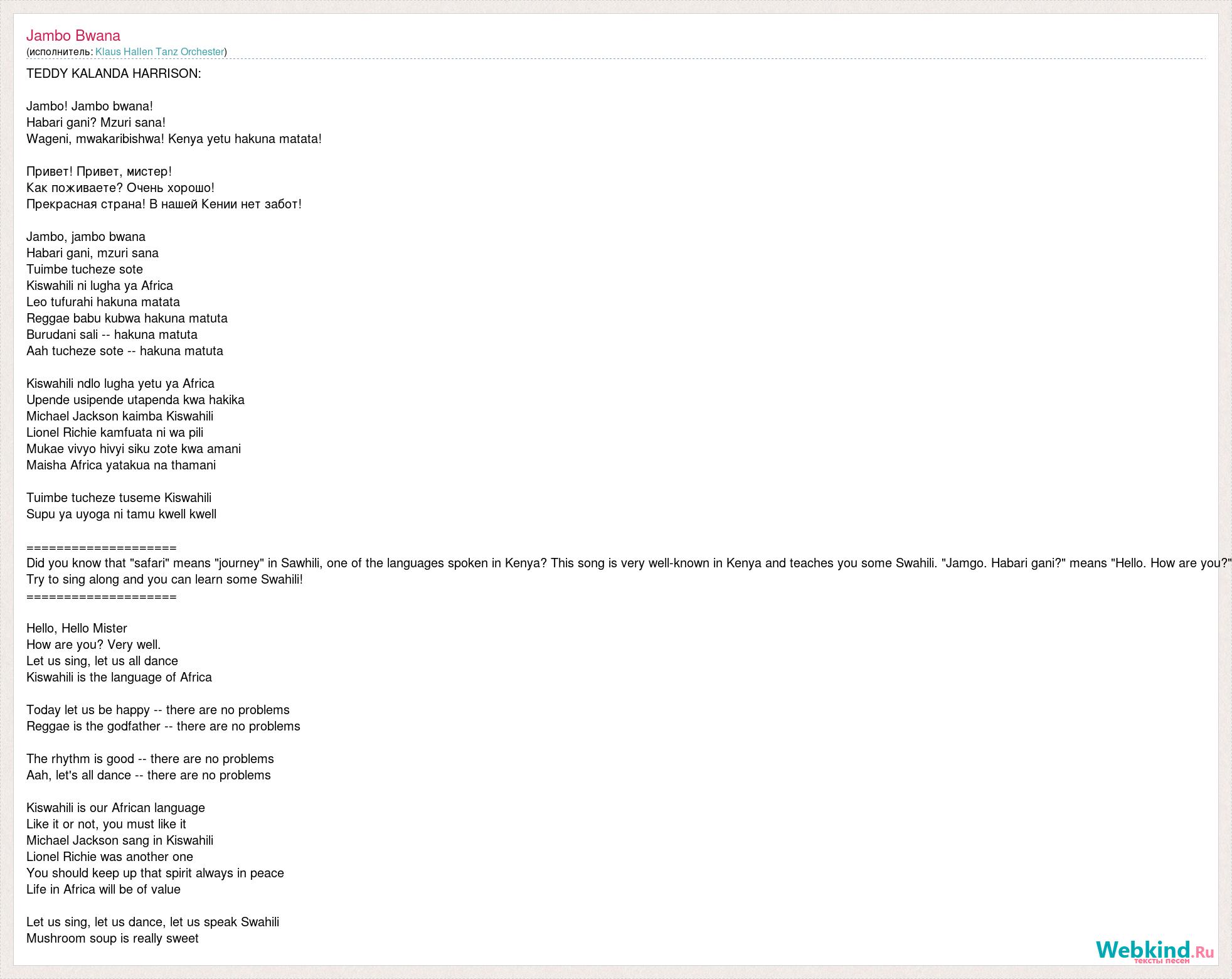

Next, like I mentioned above, we’ve got to mention the usage of the word “bwana.” Bwana is oftentimes translated as “sir,” but it’s steeped in history of colonialism, and can also be thought of as meaning “boss” or even “master.” The word comes with a deep history of colonialism and power dynamics from colonialism. As the song is often sung to British tourists, it can really feel like a “don’t worry about it” sort of anthem, ignoring the problems that have existed and still exist. The song welcomes everyone to Kenya, sweeping away the negative impacts that colonialism has had. So, right off the bat, it’s interesting to acknowledge the dynamic. Reimagining as a Meme of Aspiration, Critical Studies in Media Communication, 31:4, 283-298, The charming tune masks the ongoing inequalities of neoliberalism, telling the innocent and the culpable alike, “no hard feelings.” Brian Ekdale & Melissa Tully (2014) Makmende Amerudi: Kenya’s Collective ” present Kenya as a inviting land for all, ignoring that many visitors come from former colonial and current neocolonial nations that cause endemic issues for contemporary Kenya. It is taught to Swahili learners and sung by Kenyans to welcome tourists. Not to be jaded, just to be thoughtful.Ī 1982 pop hit, “Jambo Bwana” is the most recognizable Kenyan song outside the country. But, before your rose-colored glasses get too rosy, I just want to throw out a few ideas. “Hakuna Matata” is a simplified/pidginized form of “no problems,” usually used with tourists.Ĭhorus of the song “Jambo Bwana” by Them Mushrooms, lyrics and translation Reflections for Foreigners Mwakaribishwa is a cool grammatical form (using both the passive and casuative affixes) of the verb root “karibu” (welcome). Wageni is the plural form of “mgeni,” meaning visitor/guest. Habari is a common Swahili greeting, literally meaning “news.” * Bwana has a more complicated meaning than just “sir” - we’ll talk about that in the next section.

Let’s go through the lyrics to “Jambo Bwana,” with translations of what they mean, and some notes to help with your Swahili language-learning. Since that first album, Them Mushrooms has continued making and releasing music since then, with a grand total over 16+ albums (the most recent in 2015). The song “Jambo Bwana” was written by the Kenyan band “ Them Mushrooms,” and released in 1982.

Jambo Bwana is such an ubiquitous song that some people think it’s just a “folk song,” traditional and attributable to nobody - but that would be incorrect. Its lyrics includes several common phrases and greetings in Swahili, such as habari gani nzuri sana (how are you doing very well) and hakuna matata (no. Who Wrote “Jambo Bwana?” (Them Mushrooms)


 0 kommentar(er)
0 kommentar(er)
